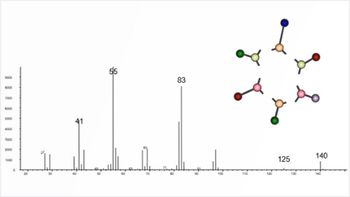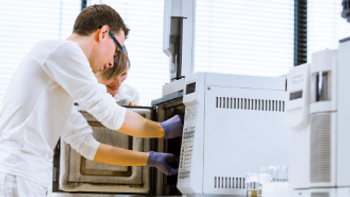
Magnetic Solid-Phase Extraction (MSPE) with HPLC Method Developed for NSAID Analysis
Scientists have developed a magnetic ionic liquid hypercrosslinked polymer composite for use in magnetic solid-phase extraction (MSPE) of non-steroidal anti-inflammatory drugs (NSAIDs), which was coupled with high-performance liquid chromatography (HPLC) for the detection of trace amounts of NSAIDs in water and urine samples.
Researchers at Henan University of Chinese Medicine in Zhengzhou, China have successfully developed a method to extract and analyze trace amounts of non-steroidal anti-inflammatory drugs (NSAIDs) in water and urine samples. Their findings were published in the Journal of Chromatography A (1).
Non-steroidal anti-inflammatory drugs (NSAIDs) are a class of drugs commonly used to treat pain and inflammation. They work by blocking the production of prostaglandins, which are hormone-like substances that cause pain and inflammation. Common NSAIDs include aspirin, ibuprofen, and naproxen. NSAIDs can have side effects, including gastrointestinal bleeding and kidney damage, and should be used with caution, especially in high doses or for long-term use.
NSAIDs are commonly used for pain relief and inflammation, but their presence in the environment can pose a potential threat to human health and the ecosystem. The researchers utilized Friedel-Crafts alkylation to prepare a magnetic ionic liquid hypercrosslinked polymer composite (Fe3O4@IL-HCP), which was then used as a magnetic solid-phase extraction (MSPE) adsorbent for the isolation and enrichment of NSAIDs.
The Fe3O4@IL-HCP composite demonstrated high saturation magnetization, large specific surface area, and high adsorption capacity for NSAIDs. The adsorption behavior and mechanisms were investigated in detail, and NSAIDs were found to be adsorbed onto the sorbent via a heterogeneous multilayer process consisting of hydrogen bonding and π-π and electrostatic interactions.
By coupling the MSPE method with high performance liquid chromatography (HPLC), the researchers were able to determine selected NSAIDs in water and urine samples. The developed method displayed wide linear ranges, low limits of detection, sufficient recoveries, and good precision. The results indicate that the MSPE–HPLC method is a sensitive and efficient approach for monitoring trace NSAIDs in environmental water and biological samples.
MSPE–HPLC (Magnetic solid phase extraction–high performance liquid chromatography) is a sample pretreatment method that enables the efficient enrichment and purification of target analytes, such as drugs or contaminants, in complex matrices like water and biological samples. MSPE uses magnetic adsorbents that can be easily separated from the sample matrix using an external magnetic field, which simplifies the purification process and reduces the use of organic solvents. The purified analytes are subsequently analyzed using HPLC, which is a powerful and versatile separation technique that can provide accurate and sensitive quantification of the target analytes.
Compared to other sample-pretreatment methods, MSPE offers the advantages of good purification effects and low use of organic solvents, making it a promising technique for the analysis of NSAIDs in environmental samples. The developed method also overcomes the limitations of other methods such as SPE, which can have limited diffusion and mass transfer rates, long processing times, and column blockage.
Overall, the findings of this work provide an appealing alternative for the extraction and determination of trace NSAIDs in environmental water and biological samples. The researchers hope that this method will aid in the monitoring and control of NSAID contamination in the environment, ultimately contributing to the preservation of human health and the ecosystem.
Reference
(1) Han, P.; Hu, K.; Wang, Y.; Li, L.; Wang, P.; Zhu, W.; Gong, H.; Zhang, Z.; Zhang, S. Dispersive solid-phase extraction of non-steroidal anti-inflammatory drugs in water and urine samples using a magnetic ionic liquid hypercrosslinked polymer composite. J. Chromatogr. A 2023, 1689, 463745. DOI:
Newsletter
Join the global community of analytical scientists who trust LCGC for insights on the latest techniques, trends, and expert solutions in chromatography.




